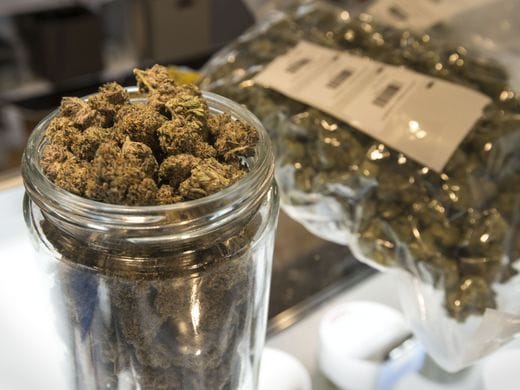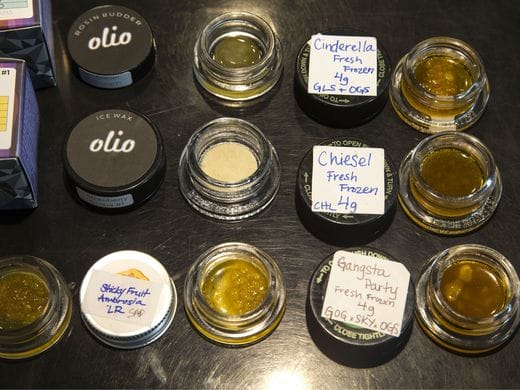
New Jersey is transforming its medical marijuanna program. Stingy can best describe the program enacted under the last administration. Now the program will be expanded. The provisions below are just changes in the definitions of the proposed law. However, my position on legal and medical marijuana is the same; professional licensees must be fully aware of the legal and practical consequences of consuming pot.
The new defintions this law changes are different than Pennsylvania:
Bona fide practitioner-patient relationship means a relationship in which the health care practitioner has ongoing responsibility for the assessment, care, and treatment of a patient’s qualifying medical condition.
This changes the law to include physician assistants and non-physician practitioners. Also, the medical condition is altered from a debilitating condition to a qualifying list similar to Pennsylvania.
“Health care practitioner” means a physician, advanced practice nurse, or physician assistant licensed or certified pursuant to Title 45 of the Revised Statutes who: (1) possesses active registrations to prescribe controlled dangerous substances issued by the United States Drug Enforcement Administration and the Division of Consumer Affairs in the Department of Law and Public Safety; (2) has a bona fide practitioner-patient relationship with the patient; and (3) is the health care practitioner responsible for the ongoing treatment of a patient’s qualifying medical condition, provided, however, that the ongoing treatment shall not be limited to the provision of authorization for a patient to use medical cannabis or consultation solely for that purpose.
The law now specifically authorizes nurse practictioners and physician assistants, any medical professional who can or does possess DEA prescription authority, to write a prescription for medical marijuna. This is a significant departure from the current law.
Cannabis is this act has the meaning given to “marihuana” in section 2 of bthe “New Jersey Controlled Dangerous Substances Act,” P.L.1970, c.226 (C.24:21-2).
This provision automatically equates medical marijuana with the drug under NJ’s drug laws, thereby eliminating any ambiguity that possession of marijuana for medical purposes is legal under state law. However, the practictioner will still have limitations on use and impairments.
Designated caregiver is a resident of the State who: (1) is at least 18 years old; and has agreed to assist with a registered qualifying patient’s medical use of cannabis, is not currently serving as designated caregiver for more than one other qualifying patient, and is not the qualifying patient’s health care practitioner. A patient may have two designated care givers. All institutional caregivers will be registered and placed on a list, subject to annual renewal and both federal and state criminal background checks.
Your child and/or doctor can not be a designiated care giver. Your care giver can only be giving care to one person at a time. The care giver must be a NJ citizen residing in the state, registered with the state, not have any criminal record, but can be an adult family member who registers with the state. An institutional care giver in a nursing home or other facility where a patient resides can administer medical marijuana. However, these persons too must not have any criminal record.
Care givers denied authorization to dispense marijuana have a seperate due process procedural right to contest the denial. This is significant.
(2) Notwithstanding the provisions of paragraph (2) of this subsection to the contrary, no applicant shall be disqualified from serving as a designated or institutional caregiver on the basis of any conviction disclosed by a criminal history record background check conducted pursuant to this section if the individual has affirmatively demonstrated to the executive director clear and convincing evidence of rehabilitation. In determining whether clear and convincing evidence of rehabilitation has been demonstrated, the following factors shall be considered:
(a) the nature and responsibility of the position which the convicted individual would hold, has held, or currently holds;(b) the nature and seriousness of the crime or offense; (c) the circumstances under which the crime or offense occurred; (d) the date of the crime or offense; (e) the age of the individual when the crime or offense was committed; (f) whether the crime or offense was an isolated or repeated incident; (g) any social conditions which may have contributed to the commission of the crime or offense; and (h) any evidence of rehabilitation, including good conduct in prison or in the community, counseling or psychiatric treatment received, acquisition of additional academic or vocational schooling, successful participation in correctional work-release programs, or the recommendation of those who have had the individual under their supervision.
Qualifying medical condition means seizure disorder, including epilepsy; intractable skeletal muscular spasticity; post- traumatic stress disorder; glaucoma; positive status for human immunodeficiency virus; acquired immune deficiency syndrome; cancer; amyotrophic lateral sclerosis; multiple sclerosis; muscular dystrophy; inflammatory bowel disease, including Crohn’s disease; terminal illness, if the patient has a prognosis of less than 12 months of life; anxiety; migraine; Tourette’s syndrome; dysmenorrhea; chronic pain; or any other medical condition or its treatment that is approved by the commission.
This is a similar list to Pennsylvania’s. These are all proposals and the law is not enacted yet. Stay tuned for more discussion on New Jersey’s new medical marijuana program. But, if you are a licensed professional, do not go to work with THC in your system. It is a basis to lose your job, license, and career.














